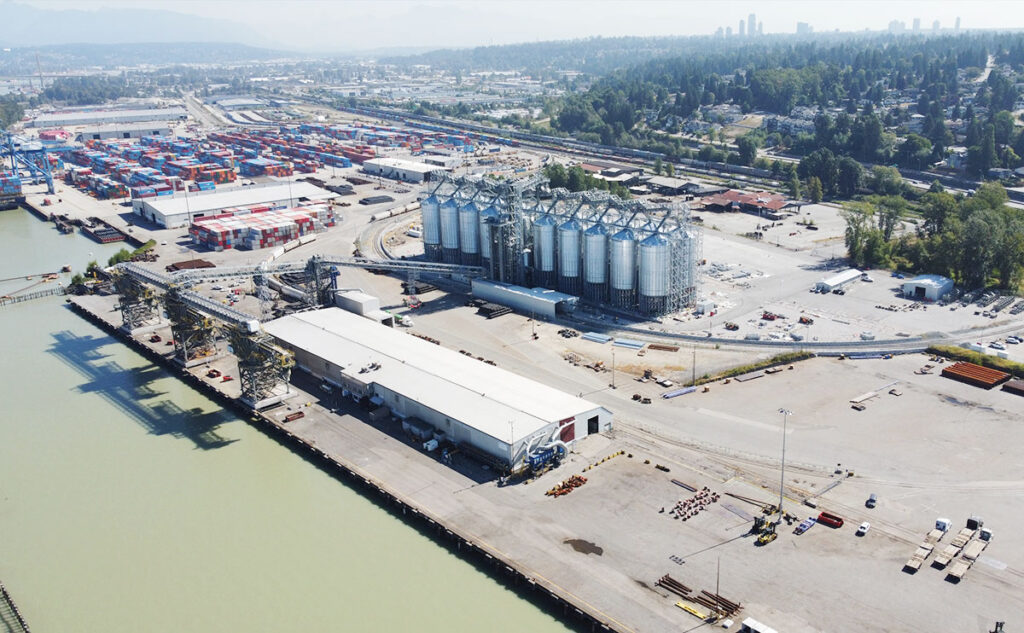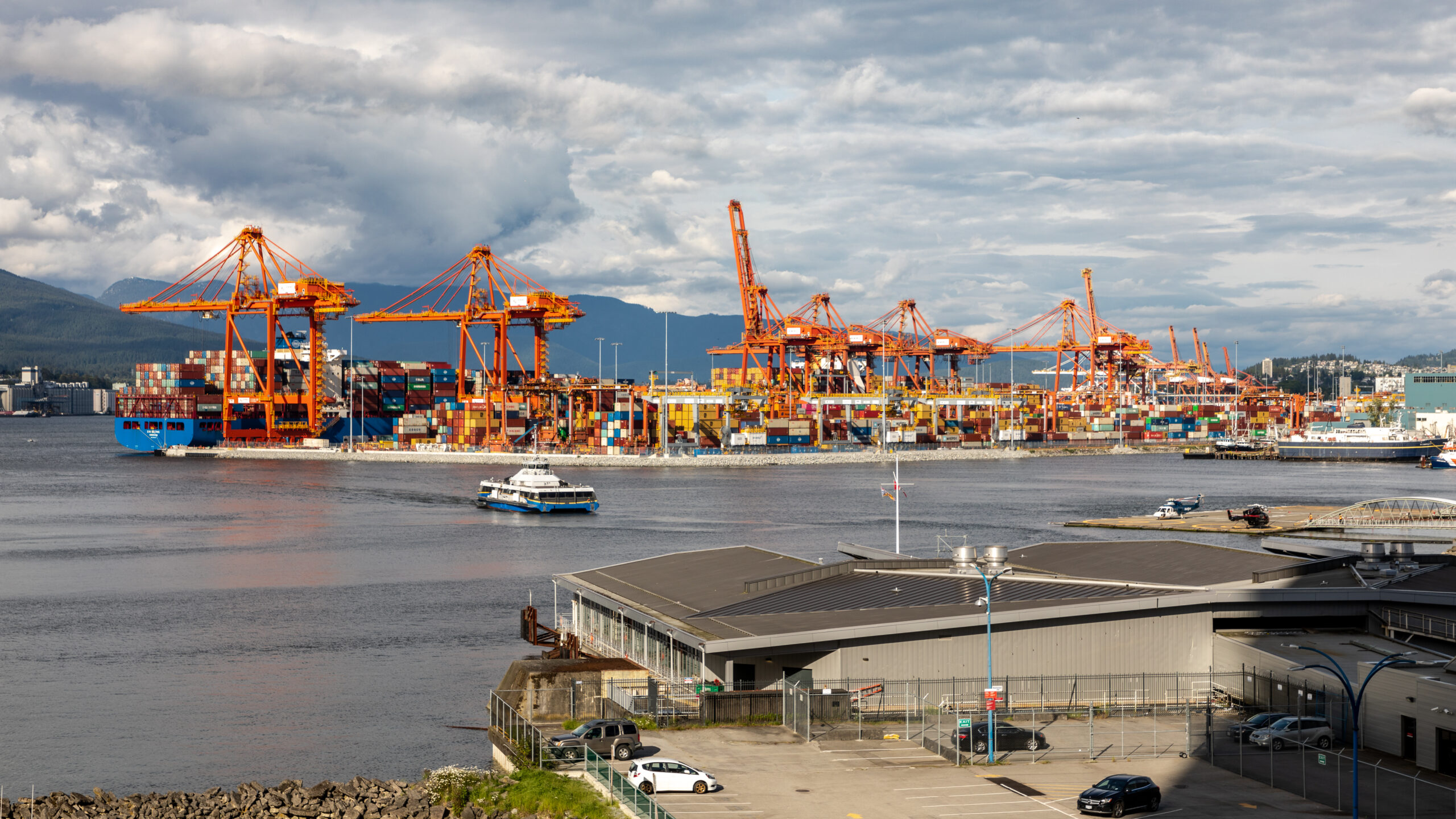Last week's four-day strike action by grain silo workers in Metro Vancouver forced the Vancouver Terminal Elevator Association to make an offer for a new collective agreement. The Grain Workers Union Local (GWU) 333 endorsed the tentative deal. The strike was immediately met with calls for government intervention, reflecting a growing trend in management.
The Port of Vancouver warned the strike would be "damaging to Canada's economic prosperity." Agribusiness industry lobbyist Canola Council of Canada called on the federal government to "take all necessary measures to ensure that Canadian canola can move through the Port of Vancouver to reach international markets."
Those calls were made despite guidelines set by the BC Labour Relations Board on what falls under the definition of an essential service.
In an interview with The North Star, Douglas Lea-Smith, the president of GWU 333, fought back against misleading claims about worker conduct and the strike's effects on the economy. He also pushed back on narratives that use consumers to justify potential forced arbitration.
Lea-Smith stated, “What has happened is that the employer has repeatedly failed to come to the table with an offer. They have tried in every fashion to avoid giving the bargaining committee an offer.”
He said that the employer “tried bargaining directly with the membership by issuing a highlights reel of what was in the [comprehensive proposal] package, and it made the membership incredibly incensed. They voted for a strike at that point.”
During the strike, there were numerous reports of grain workers walking off the job and halting grain shipments to the point that stores were at risk of running out of grain products.
However, Lea-Smith explained that grain was still moving through the port. “They're using their foreman, and they're operating the [grain] terminals. The grain's being loaded by longshore [workers] because they're mentioned in the Labour Code, so they have to do that work or be fined out of existence, and we understand that, so the grain is moving at a slower pace, but it's still moving.”
Throughout the strike, other grain terminals were in full operation. Grain was still being moved by the Fraser Grain Terminal, the Prince Rupert Grain Terminal, as well as transloading facilities that load grain into containers, such as Columbia Containers and Ray-Mont Logistics. “The story in the media that we're not moving grain and we're causing this massive damage to the Canadian economy is kind of a red herring.”

Dalhousie University food policy professor and Weston-funded grocery pundit Sylvain Charlebois told several newspapers that he hopes Ottawa intervenes and that the food supply chain should be considered an essential service in Canada.
Lea-Smith's response: “What we're actually doing is probably slowing the food supply to export. It does not in fact affect internal grain production and shipments in Canada. So the fact that this is going to hit the grocery stores any day now is absolute nonsense.”
He added, “There's this idea that they want to send the workers back to work, much as they did in the Teamsters rail dispute with CPKC and CN. That's not acceptable. The best deals are reached at the bargaining table.”
After dozens of meetings at the bargaining table, including eight times with the participation of Federal Mediation and Conciliation Services, the talks weren't making any significant progress.
Even after the 72-hour strike notice had been issued, the employer made proposals directly to the union membership instead of the mediators, according to the union president. Shortly thereafter, the workers went to the picket lines.
“We are exercising that right to strike to put pressure on some of the most powerful and profitable corporations on the planet. The agribusiness is a massively profitable business, and they're holding the farmers to ransom because they want a few more dollars out of the workers in the port of Vancouver,” maintains Lea-Smith.
A tentative deal was announced on September 27, though details were not made public at that time. The membership will vote on its ratification on October 4.
The agriculture and agri-food business generated $150 billion last year, accounting for 7% of Canada's GDP. Canada is the fourth-largest exporter of wheat and more than half of all Canadian-grown grain moves through the affected terminals, which receive about 100,000 tonnes of grain each day.
“We operate eight terminals in the port of Vancouver, the Fraser River and Prince Rupert Grain, Prince Rupert and as well as two transloading facilities for grain,” explains Lea-Smith, “and they're dirty and dusty jobs. They're dangerous jobs. What we do is we unload grain, and we store it, we clean it, we blend it for export and we ship it to boats, to ships. It's a highly combustible material, and it's a heavy industrial job, much like long-shoring is.”
Despite the risks workers take on, Lea-Smith says that for the employers, “The main flexibility point in making themselves more profitable is to take it out on labour."
- Bosses complain, longshoremen block two terminals and demand more
- Understanding the forced return to work at Canadian ports
- Grain Workers Secure Tentative Deal Despite Misleading Reporting
- The employers are causing the disruption in BC ports, says labour expert


